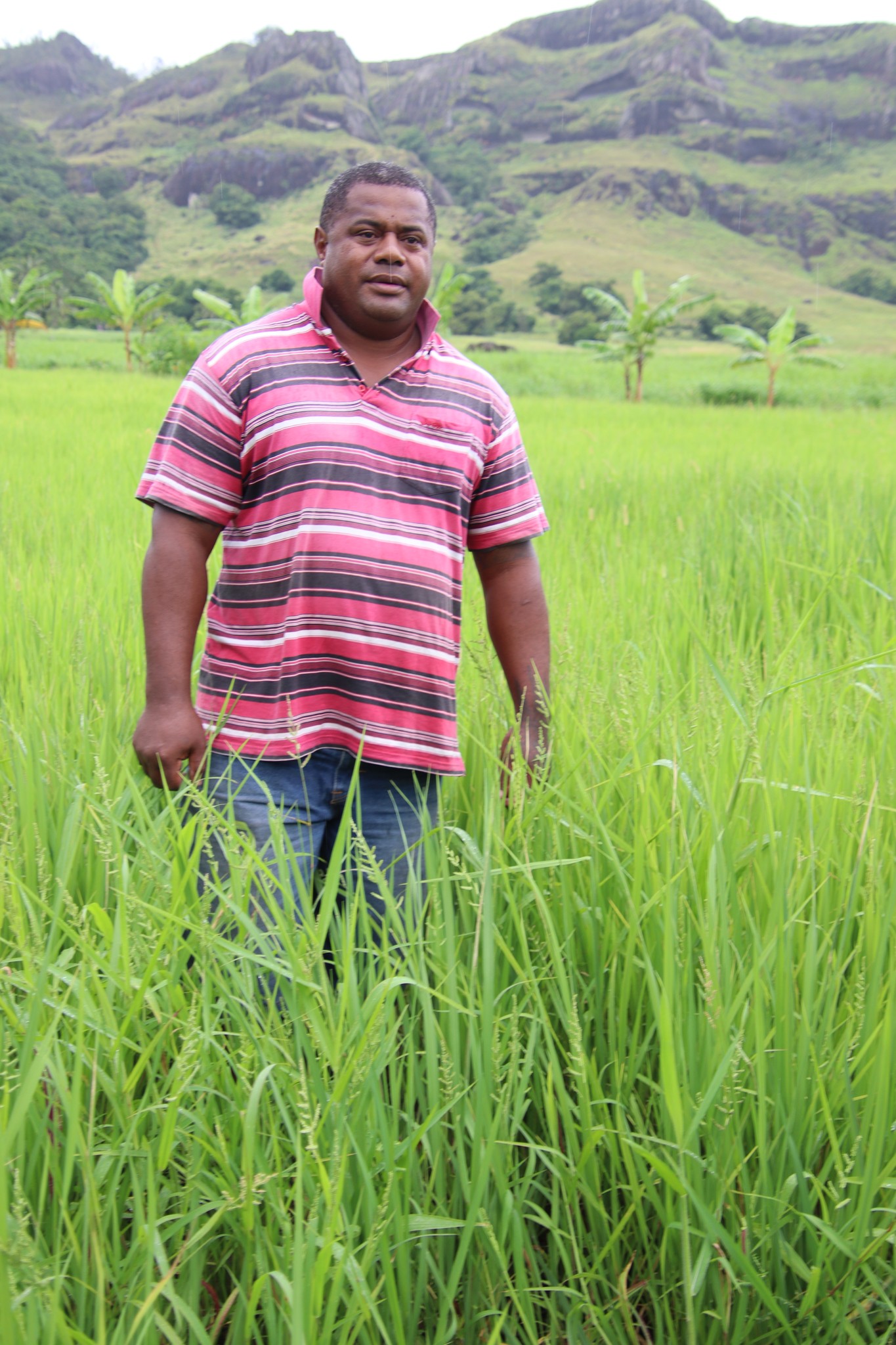RICE FARMER ENCOURAGE YOUTHS TO UTILISE THE LAND

Tomasi Raiula is a 41-year-old rice farmer in Vunivutu, Labasa who started rice farming three years ago and has never looked back since.
He admits that even though he was not the brightest student in school back in the day, he still made something of his life today and that is through toiling the land for a living.
“I was not always the brightest and came from a not so well-off family. I didn’t want my life to revolve around poverty so I decided to lease 35 acres of land and turn it into a field of wealth,” smiled Mr. Raiula.
“I tried out dalo, yaqona and watermelon farming and even though the money was good, it was a lot of hard work and for dalo and yaqona, took a long time to harvest. Then I decided to try out rice farming in the flatlands of Vunivutu.”
“It has been a game changer! I am so grateful that I took up rice farming as I am now reaping the benefits of my sacrifices,” smiled Mr. Raiula.
He adds that he worked closely with the Ministry of Agriculture and Waterways and was handed the Boldgrain Variety of rice to start off with.
After a few harvests, Mr. Raiula purchased his own tractor and a personal vehicle to assist him in the daily operations of the farm.
“I am so grateful that the Coalition Government introduced the increase in the price of rice per tonnage and that is the price that we are now getting for our harvested rice. $1000 per tonne is a lot of money and imagine the amount of money that we could be saving if we farmed rice on a larger scale,” added Mr. Raiula.
“Planting rice is easy as all I have to do is prepare the land nicely and throw the seeds in a neat manner. After four months, I get to harvest rice which is supplied to Fiji Rice Limited in Dreketi.”
“It is as simple as that! Farming is my passion now as through the bountiful harvests, I am able to provide for my family and also save for our future,” he smiled proudly.
The persistent farmer also encouraged unemployed youths in the towns and cities to try out farming for a living.
“We hear of murder, rape cases on the rise, drugs and HIV in the news everyday. And who are the perpetrators- our youths.
Something needs to be done and the way I see it, the land has so much to offer. It is not just a resource, but a tool for personal growth and rehabilitation.
“Spending time working on the land—whether through farming, gardening, or land-based community projects—provides several potential benefits for young people like skills development, discipline and responsibility, mental health benefits and of course community engagement and economic opportunities,” explained Mr. Raiula.
In essence, introducing youths to land-based activities offers more than just a physical way to spend time—it becomes a form of rehabilitation. It provides a healthier, productive alternative to the destructive behaviours they might otherwise be exposed to. It can help them rebuild confidence, discover purpose, and integrate into their communities in a meaningful way.
Mr. Raiula hopes his story will be able to inspire youths around the country on the endless benefits of farming for a living.
The Ministry of Agriculture and Waterways is also encouraging youths and youth groups to visit their nearest agriculture station for more information and advice.
ENDS
